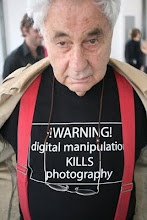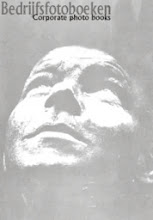Man and Machine: Photographs
by Cartier-Bresson, Henri
New York: Viking Press, 1971. Bound in dark grey cloth, stamped with titling in black and white on front and spine; dark blue endpapers. Dust jacket is unclipped with original price of $12.95.
Collection of black and white photos on the theme of the interdependence of man and his "electronic and mechanical creations" - exemplified by Cartier-Bresson's human control over his own technical tool, the camera. First Edition. Hard Cover. 12" x 10.25" (30cm x 27cm).
See also
Industrial Worlds David Goldblatt Henri Cartier-Bresson Robert Doisneau Elliott Erwitt Industria Bologna 2013 Company Photography
THU 22 MAR, 2018
Rethinking the Cold War Traffic in Photographs: Henri Cartier-Bresson’s ‘Man & Machine’ – Against the Grain
The Courtauld Institute of Art, Somerset House, Strand, London
Henri Cartier-Bresson 'Man and Machine' Stadthaus Zürich 1969
Dr Sarah James - Lecturer in History of Art, UCL
Organised by
Prof Julian Stallabrass - The Courtauld Institute of Art
In 1967 IBM commissioned Henri Cartier-Bresson to produce a portfolio of photographic images depicting human relationships with technology around the world. These images, along with a selection from the photographer’s previous works, were realised in 1968 as the touring exhibition and photobook Man and Machine. In contrast to the images of war, revolution, counter-culture and protest so often mobilised as the visual metonym of the time, Man and Machine appears to celebrate a harmonious, technologically-mediated world over which man is still in control. More than this, it seems to deliberately obscure the stark differences between First and Third World experiences, which are rendered comparable under the leveling perspective of liberal humanism and what was being naturalised as its equivalent: global Capital’s ‘inevitable’ technological expansion, and its supposedly unquestionable benefits. This talk will approach Man and Machine retrospectively – from the perspective of the New Left’s 1970s critique of documentary humanist photography – as well as contemporaneously, resituating it in relation to the image cultures of the Cold War. By doing so, and by reading Cartier-Bresson’s photo-essay against the grain, I propose that photography’s ideological mobility at this juncture might be understood not only as a weakness or limit – the means of its compromise and instrumentalisation – but also as a potential resource; an arsenal of unpredictable and disjunctive political affects and effects.
Sarah James is Lecturer in History of Art at UCL. Her first book, Common Ground: German Photographic Cultures Across the Iron Curtain, was published by Yale University Press in 2013. She has published numerous articles, chapters and catalogue essays on photography and contemporary art. This talk relates to one of her current book projects, Photography from Below: The Militant in the Mainstream, exploring the postwar commercial work of figures such as Henri Cartier-Bresson, Edith Tudor-Hart, Erwin Blumenfeld and William Klein in relation to Leftist politics, mainstream publics and popular culture.






























Geen opmerkingen:
Een reactie posten